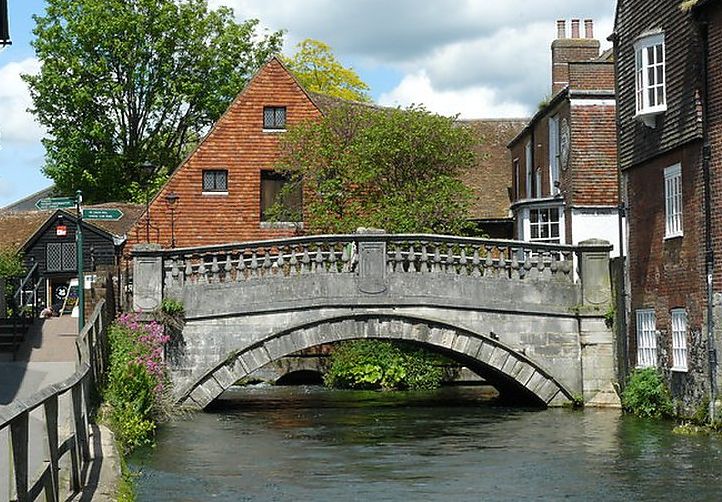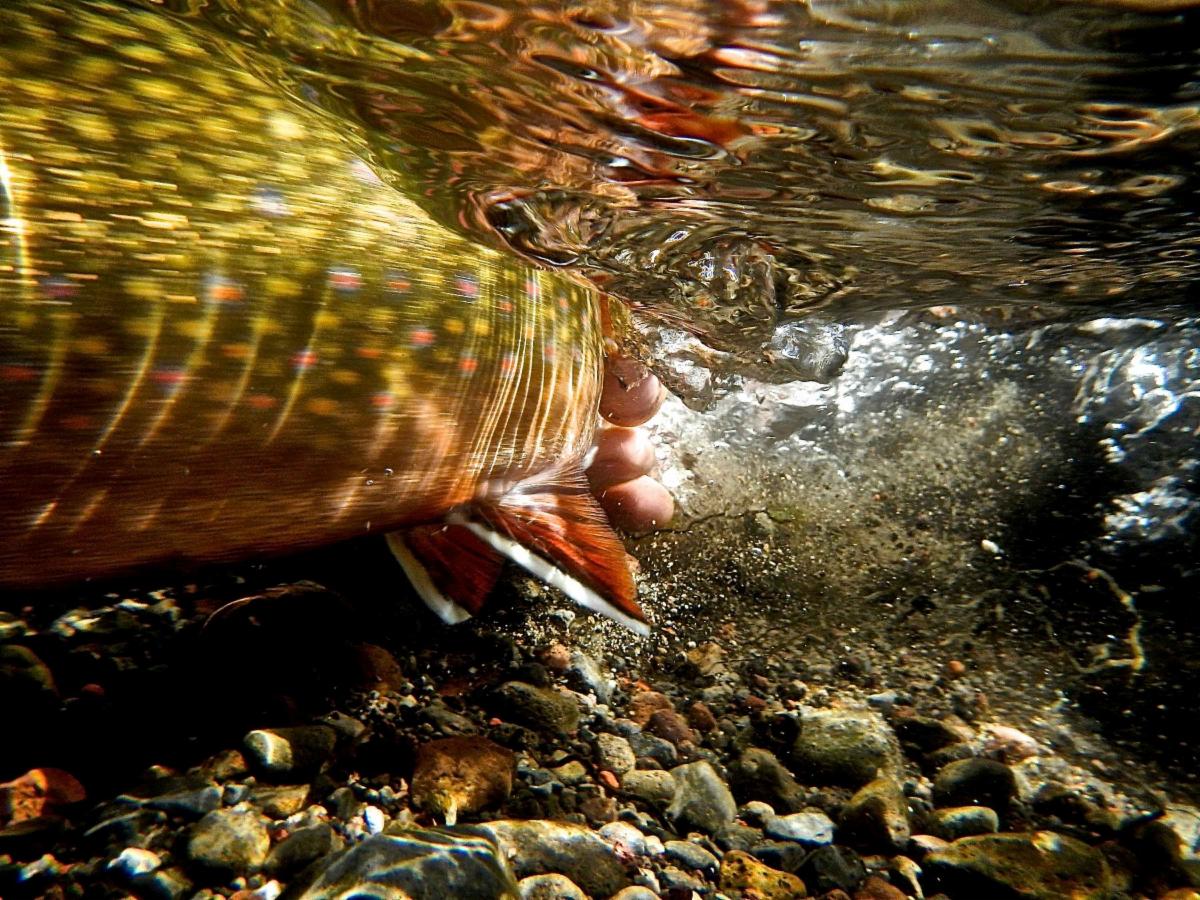Season of mists and mellow
fruitfulness
I have never
been a great fan of poetry. I recall getting into considerable trouble with my
English tutor for, when asked to critique a poem, I went on a diatribe as to
the wastefulness of this apparent literary art. Most poems where, I maintained,
a pretty collection of soaring faux rhetoric that invited the reader to seek
meaning when there was indeed none. A sort of intellectual practical joke.
|
|
 |
|
|
John Keats. August 1819.
|
Many years
on from my lecture hall tantrum I still don't feel the love for poetry. When I
come across verse in whatever context (what are those Nationwide TV adverts
about?) I glaze over to allow my mind to go a different place. But I guess I'm
mellowing just a little. If someone chooses to read Alfred Tennyson's poem The
Brook at my funeral, "For men may come and men may go, But I go on for
ever." I'll prick up my ears. I'll also make an exception for To Autumn
for it has a particular connection to the chalkstreams.
John Keats,
along with Wordsworth, Byron, Blake and Shakespeare is regularly cited in the
top five English poets of all time. I'd hazard that his opening line
"Season of mists and mellow fruitfulness" is as often quoted (and
without being reviled) as Wordsworth's "I wandered lonely as a
cloud". And very shortly it will be the two hundredth anniversary of his
poem that charts the three different aspects of the season: its fruitfulness,
its labour and its ultimate decline, that he penned on 19th
September 1819 after walking beside the River Itchen.
Keats was a
troubled man; he would be dead eighteen months after writing To Autumn
aged just twenty-six. Overtaken by both health and financial difficulties this
was to be the last poem he would write. The day he walked was a Sunday. It is
commonly assumed that he drew his inspiration from his regular route along the
water meadows south of Winchester, across what would be regarded as Winchester
Cathedral and College land today. However, more recent research suggests that
day he walked upstream from the cathedral, turning away from the river to take
in the view from St Giles Hill above the city.
If you try
to retrace his steps, you might be disappointed. The stubble of his corn fields
on the hill are long replaced by suburbia. The Itchen is largely hidden from
view, buildings standing on the banks where Keats' sallows (willow trees) once
grew. That said not all historical context is lost. The bridge over which he
crossed to make his way up St Giles Hill, and the ancient Winchester City Mill
at its base, remain largely unchanged.
So, if you
do try to take the walk to celebrate the anniversary - I certainly will -
you'll probably pause on the bridge to watch the churning, turbulent river
below as it is spat from the confines of the mill race. But for all the
melancholic beauty of Keats' words it will probably be those of Tennyson that
come to mind, "For men may come and men may go, But I go on for
ever."
 |
|
Bridge with Winchester
City Mill behind
|
Sex. But not
as we know it.
Here in the
UK we are trying to preserve the integrity of our native wild trout population
by stocking only triploid trout; that is to say infertile fish. Not everyone
likes this approach, the result of an edict passed down by the Environment
Agency and with the backing of law, about eight years ago. Some feel that
triploids, as opposed to the fully fertile diploids that we used to stock,
adapt less well to life in the wild, have lower survival rates and are less
inclined to rise.
 We are not
alone in one fish population having the potential to elbow out another. In the
western states of the USA brook trout, originally introduced from the eastern
states, are outcompeting the native cutthroat to become the dominant species to
the detriment of both the habitat and fishing. Eliminating, or even reducing
their numbers by netting, chemical or other human intervention has proved
ineffective so since the turn of the century Idaho Fish and Game biologists
have turned to genetic manipulation for a solution. Here is how it works:
We are not
alone in one fish population having the potential to elbow out another. In the
western states of the USA brook trout, originally introduced from the eastern
states, are outcompeting the native cutthroat to become the dominant species to
the detriment of both the habitat and fishing. Eliminating, or even reducing
their numbers by netting, chemical or other human intervention has proved
ineffective so since the turn of the century Idaho Fish and Game biologists
have turned to genetic manipulation for a solution. Here is how it works:
"Every
trout, just like humans, has genetic markers that determine their sex, either
XY (male) or XX (female) and according to a study released by the American
Fisheries Society, the males can be feminized by exposing them to oestrogen.
And by breeding these "feminized" males, a YY male trout can be
produced. These YY trout are then introduced into the wild. But this is where
it gets interesting when the YY males spawn with an XX female, 100% of their
offspring will be almost 100% XY males. The idea is this, that over time as
these fish continue to spawn, eventually the entire population will be male and
then die out."
It is still early days but experiments suggest that these
wonderfully named 'Trojan brookies' could eradicate an unwanted brook trout
population in a decade. Which begs the question, could this work for brown
trout in the UK? If, assuming they didn't have the same behavioural problems
attributed to triploids, we stocked Trojan browns instead then we'd be still be
able to preserve the genetic integrity of our native population who would
happily continue to breed with each other.
Video of the
Week
|
|
|
|
|
Salmon Fishing In Sweden " Silver
Shadow "
|
Here's a
good Atlantic salmon fishing film from the Catch Me Fly Fish crew.
They head
for the Swedish rivers that flow into the Baltic Sea to prove, contrary to most
films that make it look easy, how tough it can sometimes be.
To watch it
click
here.
The Quiz
As ever the
quiz is just for fun, with answers at the bottom of the page.
1)
Which
famous angler and author is buried in Winchester Cathedral?
2)
Who
led the force that invaded the city of Troy hidden in the Trojan Horse?
3)
When
did Winchester cease to be the capital of the Kingdom of England?
Have a good
weekend.
Best
wishes,
Simon Cooper simon@fishingbreaks.co.uk
Founder & Managing Director
Answers:
1)
Izaak
Walton
2)
Odysseus
3)
1066


No comments:
Post a Comment